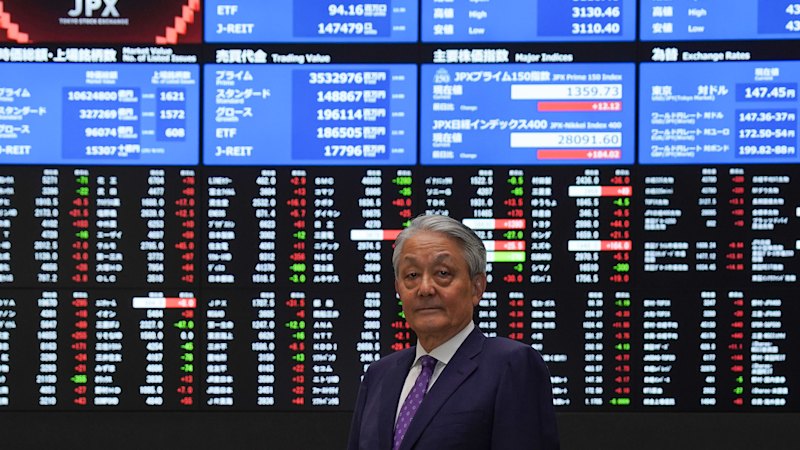
Japan’s efforts to modernize its stock market have attracted significant global investment, although challenges remain due to incomplete reforms. According to Hiromi Yamaji, CEO of the Japan Exchange Group, only about 20 percent of prime listed companies currently meet global governance standards. Many firms continue to struggle with outdated business models and insufficient capital efficiency, which complicates efforts to draw in more foreign capital.
Yamaji expressed dissatisfaction with the current state of corporate governance during an interview with the Australian Financial Review. He stated, “Corporate governance reform is an endless effort. Once you reach a certain level, you must aim higher; otherwise, it very easily degrades.” The lack of trust in the marketplace due to governance failures contributes to ongoing challenges.
Since Yamaji took the helm in 2013, he has overseen pivotal reforms aimed at restoring the Japanese markets, which have faced stagnation since the early 1990s. For over two decades, Japan experienced economic deflation, resulting in stagnant wages and corporate boards that were largely influenced by creditor banks. The push for corporate governance reforms began in 2015 under former Prime Minister Shinzo Abe, focusing on increasing returns on equity and enhancing board independence.
Yamaji noted that while some companies are excelling, many are lagging behind in adapting their business strategies. “But we can see the peer pressure starting to make a difference,” he said. Companies that have been recognized as “good cases” by the Tokyo Stock Exchange have experienced a remarkable 66 percent increase in share prices over the past two years, compared to a 44 percent gain for the broader market.
The MSCI Japan Value Index, which tracks undervalued firms benefiting from reforms, has surged 128 percent over the last five years, significantly outpacing the 54 percent rise in the growth index. This performance has captured the attention of global investors, leading firms like Elliott Management and Oasis Management to actively engage with Japanese companies. In June alone, over 2,000 firms held shareholder meetings, with 52 receiving proposals from activist investors, breaking last year’s record of 46, according to data from Mitsubishi UFJ Trust and Banking.
Historically, most proposals from activist investors were outright rejected, especially those from foreign entities. However, the landscape is shifting as domestic investors begin to exert influence as well. Yamaji remarked, “Japanese domestic investors are now voting against company proposals. This is a very big wakeup call for Japanese management.”
One of the most notable signs of change is the emergence of genuine takeover battles in Japan. As of the end of August, foreign firms made 157 proposals to acquire Japanese companies, a number poised to surpass last year’s record of 193, according to Bloomberg. The competition intensified when Fujisoft became the center of attention in a $4 billion bidding war between private equity giants Bain and KKR, with KKR ultimately securing the deal in February.
The shift in corporate governance has also led to changes in board structures. For example, Fujitech, an elevator manufacturer, was compelled to replace its directors due to pressure from activist investors. Yamaji stated, “Being endorsed as a board member is no longer easy,” highlighting a significant change in the market dynamics.
Despite these positive developments, governance issues remain a concern. This year, the number of management buyouts has reached 20, on track to eclipse the previous record set in 2011. Some of these transactions involved offers valued below book value, prompting criticism from investors. In July, the Tokyo Stock Exchange introduced new disclosure rules requiring firms to provide transparency in their valuation processes—an unprecedented move in a market where companies often report asset values at historic costs.
Yamaji acknowledged the exchange’s slow response to protecting minority shareholders, stating, “To maintain the fairness and transparency of the market, we have needed to enhance the protection of minority shareholders.” He affirmed the exchange’s commitment to periodically review governance practices to ensure they meet evolving expectations.
As Japan continues its journey toward reform, the interplay between corporate governance and foreign investment will be critical in shaping the future of its markets.







